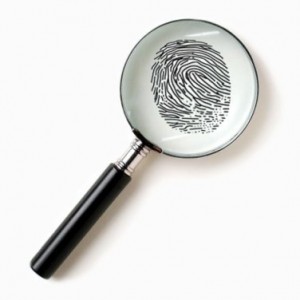BY MONSY ALVARADO
Board of education members statewide will be fingerprinted in the coming weeks to comply with a new state law that requires they undergo a criminal history check.
The state Department of Education has sent procedures to school districts, and is urging trustees to get the digital fingerprints done as soon as possible, said Faith Sarafin, spokeswoman for the department.

Fast Facts
The crimes that could lead to a disqualification from serving on a board of education include murder, manslaughter, aggravated assault, robbery, burglary, kidnapping, stalking, arson, and offenses relating to the manufacturing, transportation, sale, possession, distribution or habitual use of a controlled dangerous substance or drug paraphernalia. Also included are terroristic threats, luring of a child, reckless endangerment, criminal restraint, bias intimidation, criminal mischief, causing or risking widespread injury or damage, and perjury and false swearing.
“There is no new deadline set because of the volume that is to be processed. However, board members cannot just ignore initiating the process,” said Sarafin. “At some point, the DOE will have to identify anyone who has not done so because it is required in order to serve.”
Several North Jersey school district officials, including those from Maywood, Ramsey, Tenafly, and Passaic Valley Regional High School have distributed the instructions to board members, and a few have also passed resolutions saying the district will absorb the cost of the checks. Some board members are already setting up their appointments to be fingerprinted.

Joseph Licata, president of the Lodi Board of Education, said he filled out registration forms on a website and scheduled an appointment as soon as he received the paperwork. He will be fingerprinted on Friday.
“I wanted to set the example,” Licata said.
There are 4,500 to 5,000 board members serving in New Jersey. So far, 29 people are in the process of getting their background checks completed, Sarafin said. Once fingerprints are scanned by MorphoTrak, the vendor contracted by the state to perform the service, they are sent to the New Jersey State Police and the federal government for review.
When the review is complete, applicants will receive an approval, or if they are found to have been convicted of certain crimes, a disqualification letter. The district’s board will then be notified if a board member must surrender his seat.
‘Held to same standard’
Signed by Governor Christie in May, the legislation applies to all current and future board members of school districts and charter school trustees. The lengthy list of disqualifying crimes includes murder, robbery, luring of a child and drug-related offenses.
The law also requires that board members declare in their oath of office they have not been convicted of a crime that would prohibit them from serving.
North Jersey school board members say they back the law, and want to comply.
“We all need to be held to the same standard; if we want our teachers to go through this procedure than why shouldn’t we,” said Hackensack board trustee Rhonda Williams Bembry.
Michael Nardino, who sits on the Lodi school board, requires background checks for all employees and volunteers who work at the Boys and Girls Club of Lodi and Hackensack where he is executive director. He said he’s glad to undergo the review as a school board member.
“I find background checks a necessity,” Nardino said. “Last thing we need to do is to have somebody there who has a terrible criminal background record.”
This past April, Lodi resident Gary Bigica, a former police officer who served time in prison, ran an unsuccessful bid to sit on the school board.
In 1991, Bigica and Chris Kimbiz, a detective at the time, were charged and convicted in connection with a drug ring that operated out of the Lodi Modern Bakery. They were found guilty of conspiracy and extortion and sentenced to two years in prison. Both were released from prison in 1994.
Bigica could not be reached for comment last week. His running mate, Lodi Fire Chief Anthony Maiolo, said that during the campaign they were told about the pending legislation that would have disqualified Bigica from serving the term if he won. But Maiolo said they decided that Bigica should continue his candidacy because he was qualified for the job, and because the conviction was long ago.
“It happened, and it’s over, and it’s well in the past, and he hasn’t had a mark on his record since,” Maiolo said. “He’s a family man, and he’s turned everything around, and he has actually prevailed from it.”
Under the law, a school board member or charter school trustee has 14 days to challenge the accuracy of the criminal history record.
Reimbursements offered
Several North Jersey school districts are also picking up the tab for the checks. Maywood, Rochelle Park, Paramus, Tenafly and the Passaic Valley Regional High School in Little Falls will reimburse board members for the $70.25 registration fee plus $11 administrative cost, officials in those districts said.
“Since they receive no compensation whatsoever for their service, the board voted to reimburse,” said Paramus interim Schools Superintendent Joseph Lupo.
At least one Bergen County school district has opted to let board members pay for the check themselves. Denise Villani, president of the Cresskill Board of Education, said because the district’s volunteer coaches pay for their checks, the board felt it should, too.
“We thought it was the right thing to do,” Villani said. “If we are asking them to pay we should absorb the cost as well.”
The background checks can be paid by board members, school districts, or even unexpended campaign fund money, the law states.
The New Jersey School Boards Association pushed for the law to include an option for districts to cover expenses. Mike Yaple, spokesman for the organization, said a majority of school boards are expected to pass reimbursement resolutions.
Catherine Jenisch, business administrator in Hawthorne, said the board in her district will likely vote on a reimbursement resolution at its next board meeting this month. Officials in Wayne, Carlstadt, Lyndhurst, and Ho-Ho-Kus haven’t passed resolutions yet, but will likely end up paying, officials said.
“It just seems to me that the volunteers shouldn’t have to pay $70,” said Ho-Ho-Kus Schools Superintendent Deborah Ferrara. “As it is they put in a lot of time … they already give a great deal.”
John Nunziata, board president in Ramsey, said trustees there will hold a special meeting on Aug. 22 to review the instructions that were sent to them by the business administrator. He said locally he doesn’t see the background checks as necessary because board members are well-known long time residents who have been active in other civic activities.
“If there is a greater good to be served because it’s a statewide initiative than we will follow it,” he said.
The law was introduced in January 2010 and was passed by the state Senate and Assembly 13 months later. The governor conditionally vetoed it in early May and recommended that additional grounds for disqualification, specifically bias intimidation and fourth-degree crimes involving minor victims, be included.
Initially, board members were expected to adhere to the legislation within 30 days of it taking effect, but were delayed because the state needed approval from the U.S. Justice Department to access the federal criminal history record files for the law’s particular purpose.

 Follow
Follow